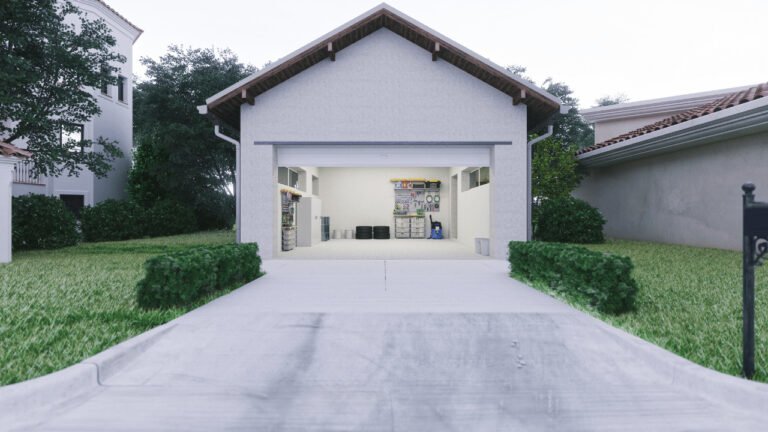Table of Contents
When it comes to choosing a new garage door, there’s more to think about than just aesthetics. The efficiency of your garage door can significantly impact your home’s energy costs. One of the key metrics used to measure a garage door’s efficiency is the R-value. But what exactly is this R-value? Let’s delve deeper.
Understanding R-Value
R-value is a measure of thermal resistance, indicating how well a material resists the flow of heat. Essentially, the higher the R-value, the better the material is at insulating and keeping out unwanted cold or heat.
Why Is R-Value Important?
For homeowners, a garage door’s R-value is crucial for several reasons:
- Energy Efficiency: A well-insulated garage door helps maintain a consistent temperature, leading to lower heating and cooling costs.
- Comfort: Especially for those who use their garage as a workspace, a higher R-value means a more comfortable environment.
- Protection: It guards against the external elements, ensuring that your vehicles and stored items remain in top condition.
The R-Value Table
Here’s a detailed table to give you a clearer understanding of different R-values and their benefits:
| R-Value | Efficiency | Best Used For |
|---|---|---|
| R-0 to R-6 | Low Efficiency | Detached garages or temperate climates. |
| R-7 to R-9 | Moderate Efficiency | Homes in mild climates. |
| R-10 to R-13 | High Efficiency | Homes in colder regions, offering good insulation. |
| R-14 and above | Very High Efficiency | Extreme weather conditions or for homeowners desiring maximum insulation. |
Why Choose Us?
Emerald Garage Doors is more than just a service provider. We are a team that values quality, efficiency, and customer satisfaction above all. When you choose us:
- Expertise: We offer comprehensive knowledge on all things related to garage doors, including a deep understanding of R-values.
- Quality Service: Our services range from 24-hour garage door repair in Seattle to offering insights on how to improve garage door opener reception.
- Trusted Advice: If you’re considering choosing a new garage door, our team can guide you on the best options, factoring in R-value, aesthetics, and more.
Services Areas
- Garage Door Installation
- Repair & Maintenance
- Emergency Services
- Door Tuning & Adjustment
- Opener Installation & Repair
Frequently Asked Questions
What factors impact a garage door’s R-value?
The type of material, be it steel, wood, or composite, plays a significant role. Moreover, the presence and type of insulation, like polystyrene or polyurethane, can affect the R-value.
How often should I replace or upgrade my garage door to maintain a good R-value?
Garage doors typically last between 15-30 years. However, for maximum energy efficiency, consider a replacement or upgrade every 15-20 years.
Can I increase the R-value of my existing garage door?
You can add insulation or weatherstripping. For more details on this, check out our post on garage door maintenance checklist.
Does a higher R-value mean a more expensive garage door?
While R-value is a factor, other aspects like design, material, and brand can influence the price. Always consult with a professional before making a decision.
In Conclusion
Understanding your garage door’s R-value is paramount when aiming for energy efficiency and comfort. If you’re in the market for a new door, or simply need guidance on improving your existing one, don’t hesitate. Explore our comprehensive list of services or contact us for expert advice and impeccable service.



